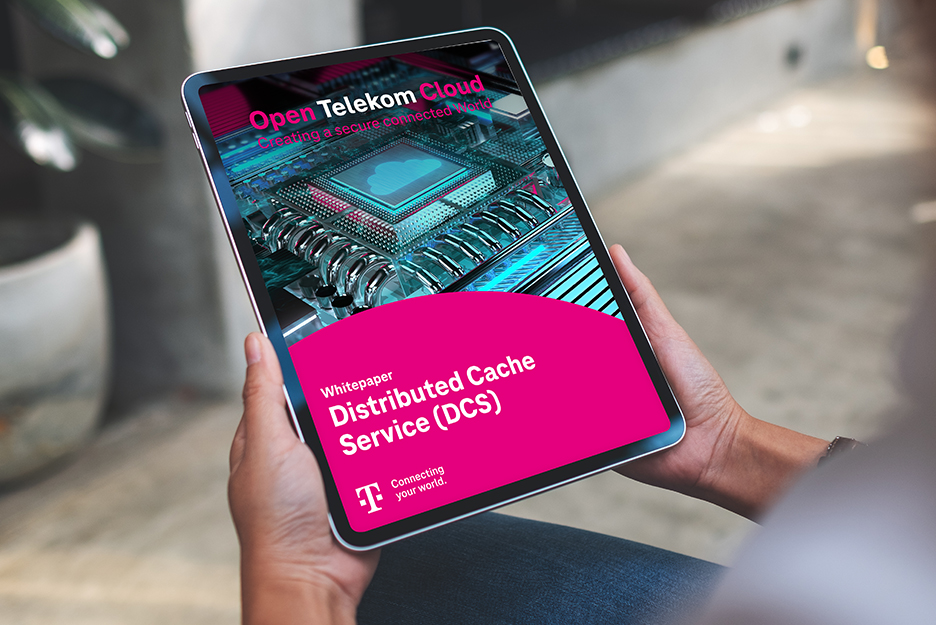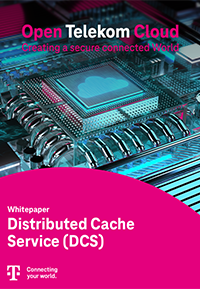In this article you will read
- what is behind the Distributed Cache Service (DCS),
- where its advantages come into play,
- and what possibilities there are for interactions with a database.
When things need to be done quickly or many users need to be supported at the same time, databases can quickly reach their limits – or the user experience drops drastically. The Distributed Cache Service (DCS) provides a quick remedy. Our whitepaper shows how the DCS can be utilized and uses measurement data to show what users of the Open Telekom Cloud (both service providers and end users) can expect from the performance of a DCS.
In most cases, one of the classic relational databases from the Open Telekom Cloud portfolio, e.g., a PostgreSQL or MySQL database, will do. So why a cache service? Is it a replacement for a database? The answer – at least to the latter question – is a clear no. The DCS is not a replacement for a classic database or document database. And users who use PostgreSQL to store business-critical data can relax – they don't have to change anything. Whenever data sizes are predictable and limited, data needs to be stored long-term or complex scenarios need to be realized, relational databases are the undisputed queens of the scene.




